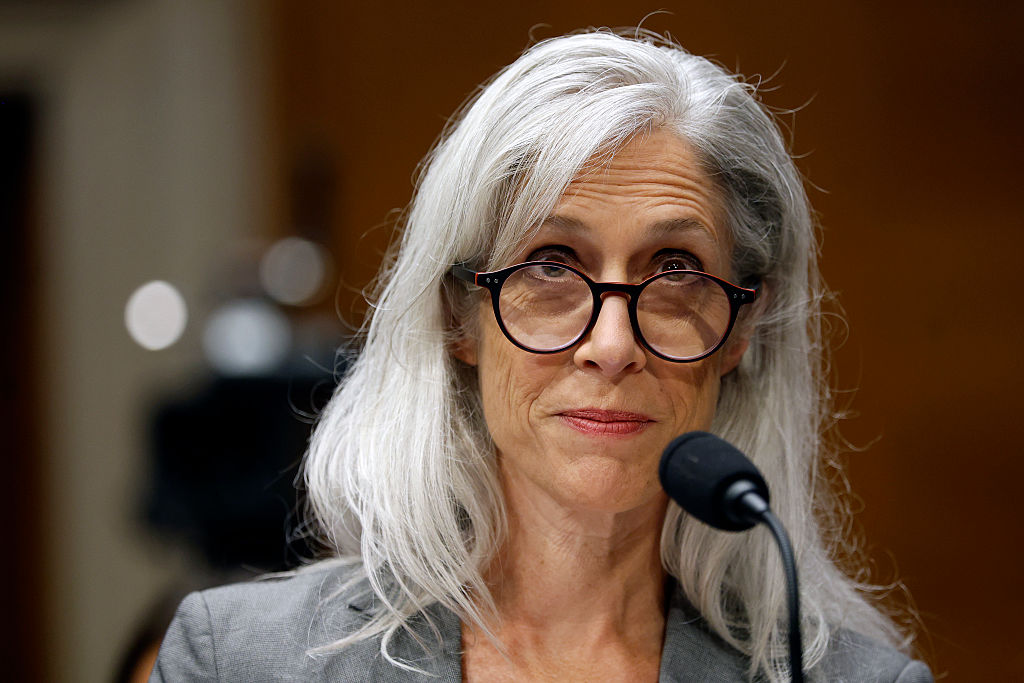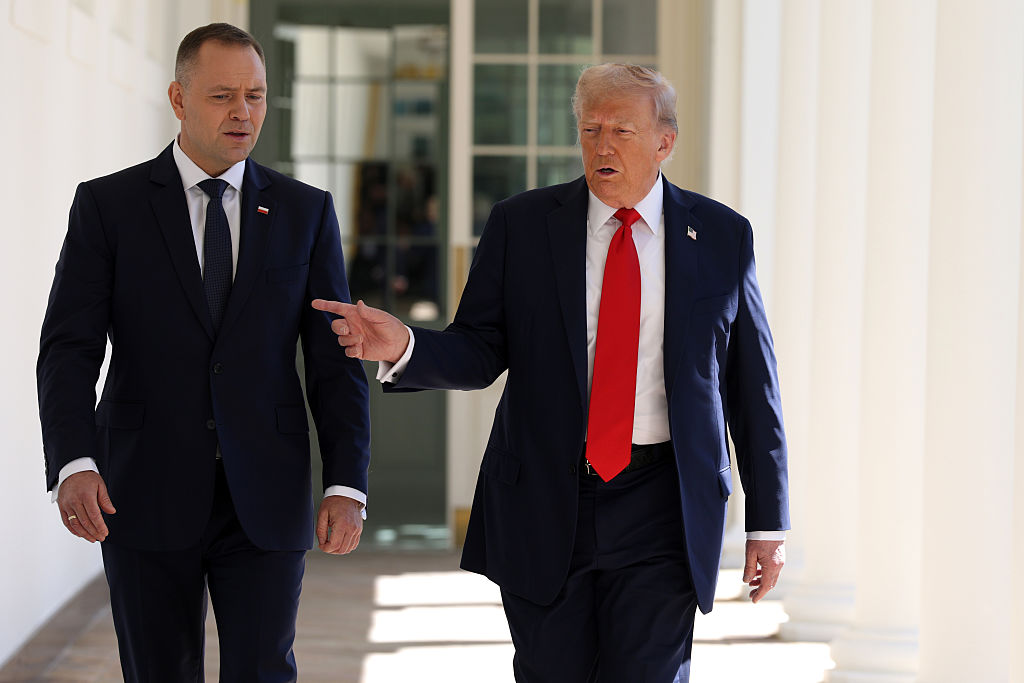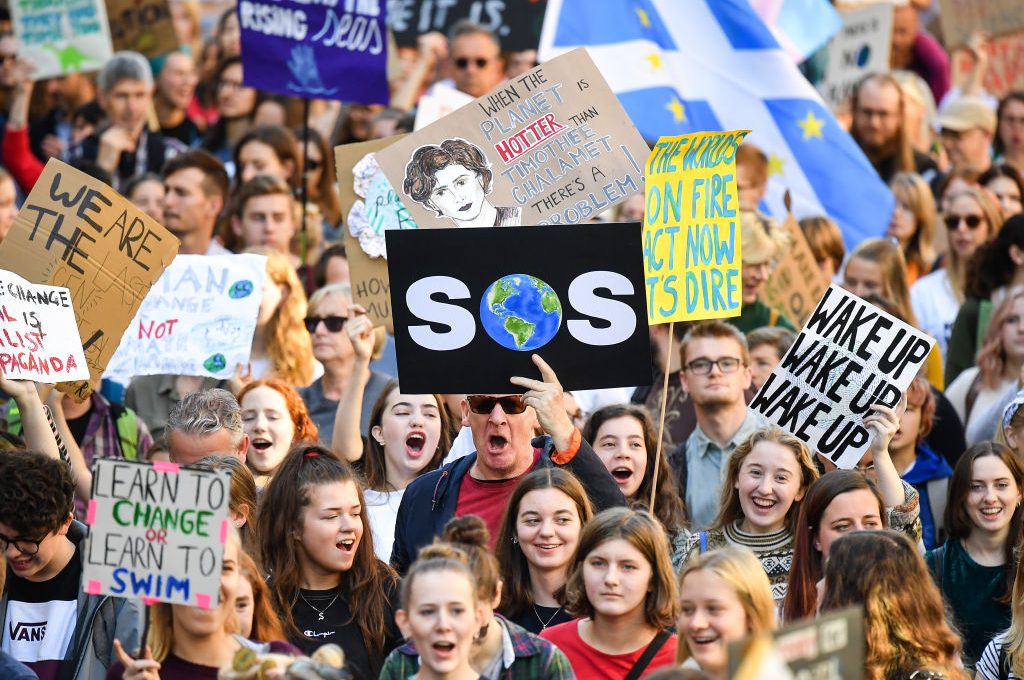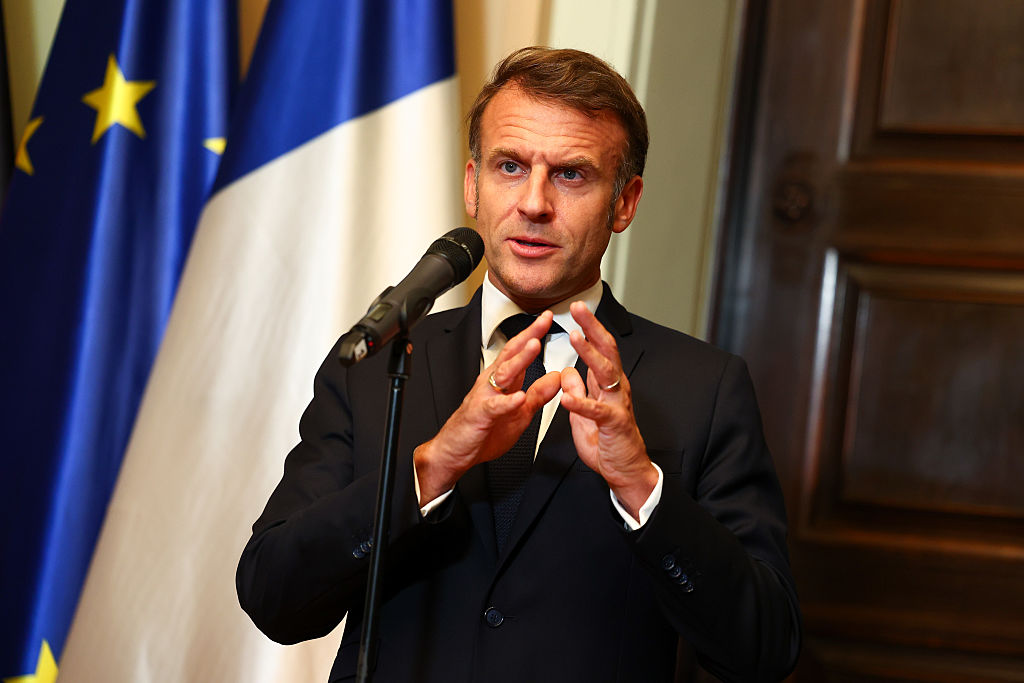The first smear campaign against AstraZeneca, when Emmanuel Macron falsely claimed at the start of the year that the shot was ‘quasi-ineffective’ in over-65s, did serious damage to public confidence in the Oxford vaccine across Europe. The latest concerted action by the leaders of Germany, France, Italy, Spain and the Netherlands may have destroyed it altogether. The decision temporarily to ban AstraZeneca originated in the German health ministry, which was spooked by reports of cerebral venous sinus thrombosis, and was blindly followed by other European leaders. This is a scandal whose roots are political, not medical, and it will have terrible consequences.
This was never really about blood clots, which is why the temporary ban of AstraZeneca was condemned by the World Health Organization, the European Medicines Agency and anyone familiar with this issue. The UK’s vaccination strategy is now based almost entirely on the AstraZeneca vaccine, with 11 million doses administered so far. Reports of dangerous side-effects would have surfaced by now. Accounts of blood clots, AstraZeneca says, ‘are lower than would be expected to occur naturally’. Regulators agree.
The ban is explained by a politically motivated blame game. EU leaders keep discrediting AstraZeneca to deflect attention from their own mistakes and to puncture the notion of a Brexit-related British success story. This short-sighted strategy has backfired quickly. After just two days living under the ban, France and Italy signaled the possibility of a U-turn, as the consequences of their actions became all too clear. Europe is coping with a third wave of COVID; vaccination is the only strategy to get out of the mess. Europe’s leaders have not just harmed this strategy, but inflicted damage to European integration.
The panic in Germany isn’t hard to understand. Angela Merkel’s CDU has just seen disastrous election results in Baden-Württemberg and Rhineland-Palatinate, two of its former strongholds. Germany’s vaccination debacle has done nothing to bolster the CDU’s standing. Its national support is so weak that its rivals could form a coalition government that freezes the CDU out of power altogether. It’s quite conceivable that the next Chancellor of Germany could be from the Green party.
In Germany, 1.6 million people have been vaccinated with AstraZeneca — of whom just seven suffered blood clots. That’s enough for Jens Spahn, its health minister, to suspend AstraZeneca in what he described as a ‘precautionary’ measure. This word reveals a fundamental misunderstanding about the nature of a two-tailed risk: a risk of acting when you shouldn’t, and a risk of not acting when you should. There have been reports of three deaths from blood clots — but delaying vaccines by a week in Europe will probably mean several hundred more deaths from COVID. Perhaps it will be even more in the long-term, if public trust in the vaccine’s safety is irreparably damaged. So it’s a very reckless type of caution.
Germans were already skeptical of the UK/Swedish vaccine. Now they have been given a reason to reject it. The German strategy allowed general practitioners to administer vaccines, but AstraZeneca was the only vaccine suitable for that operation, because of easier storage. Without AstraZeneca, the schedule may be delayed by months.
The situation is particularly dire in Italy. Mario Draghi, the new prime minister, said this week that the country is facing a new wave of the virus. He has put Italy into lockdown and is in a race against the clock with vaccines. The rollout started promisingly in January, but since then it has been plagued with delivery shortfalls and distribution problems. Draghi ended up turning to the military to help, and has replaced two key figures in charge of the program. Italy is even more reliant on AstraZeneca than other European countries. The withdrawal of the Oxford shot would mean a cut in total vaccine supply of 38 percent this month alone.
So why would Draghi suspend AstraZeneca at a time when he’s trying to push through a fivefold increase to 500,000 shots a day? Nicola Magrini, who runs AIFA, Italy’s medicines authority, doesn’t pretend there is any scientific reason. ‘The choice is a political one,’ he told La Repubblica. ‘We got to the point of a suspension because several European countries, including Germany and France, preferred to interrupt vaccinations.’ Perhaps Draghi was animated by the ‘good European’ syndrome, the need to serve the greater good of the project.
What about saving lives? Just last week, Draghi succeeded in blocking the export of 250,000 AstraZeneca vaccines bound for Australia. Now he won’t even allow Italians to have them. His government can be blamed directly for risking delays to vaccination, longer lockdown and more deaths. The effect on public confidence in AstraZeneca has been immediate — all over Europe people have canceled vaccination appointments. In France, a recent poll showed that just 20 per cent of people trust the AstraZeneca shot, compared with 52 percent who trust BioNTech/Pfizer.
In fact, the Oxford shot has proved strikingly successful and safe. It is cheap and easier to transport than Pfizer. If not AstraZeneca, then what instead? The Russians have started making Sputnik vaccines in Italy (via a deal with a Swiss firm) but it’s unlikely that Europe’s leaders would turn to Putin. There is no real alternative but to return to AstraZeneca, as they must realize.
One German economist has suggested that the best way forward is to create a separate AstraZeneca-only program which would be voluntary and open to anybody who seeks vaccination. This would allow people to choose which shot they receive, giving the option, for example, to take AstraZeneca tomorrow or wait six weeks for Pfizer. Giving people the choice may go some way towards restoring confidence in AstraZeneca.
There is no point in looking for conspiracies; this is pure incompetence. Instead of looking for solutions, EU leaders did what they do best: playing the blame game.
This article was originally published in The Spectator’s UK magazine. Subscribe to the US edition here.

























